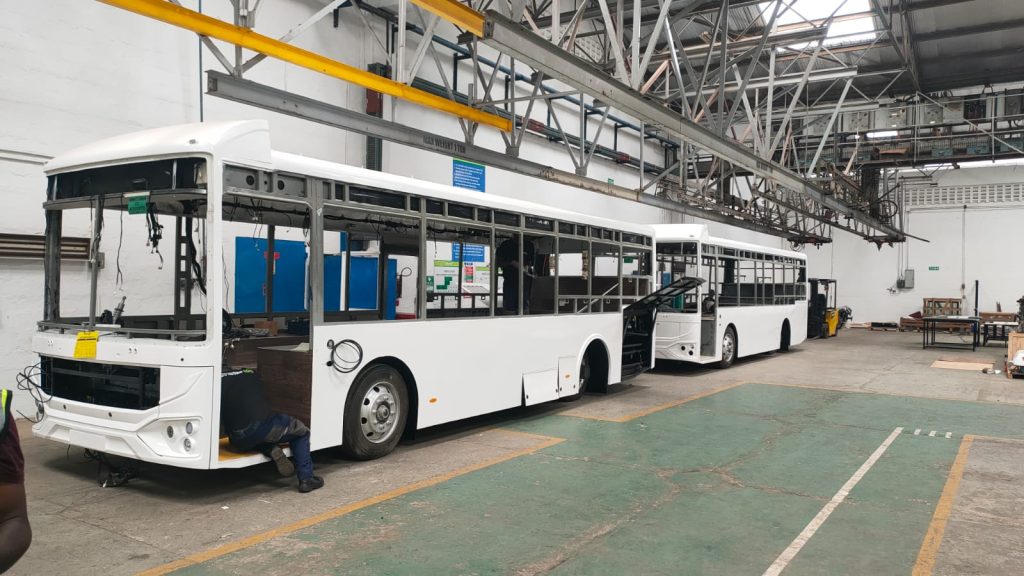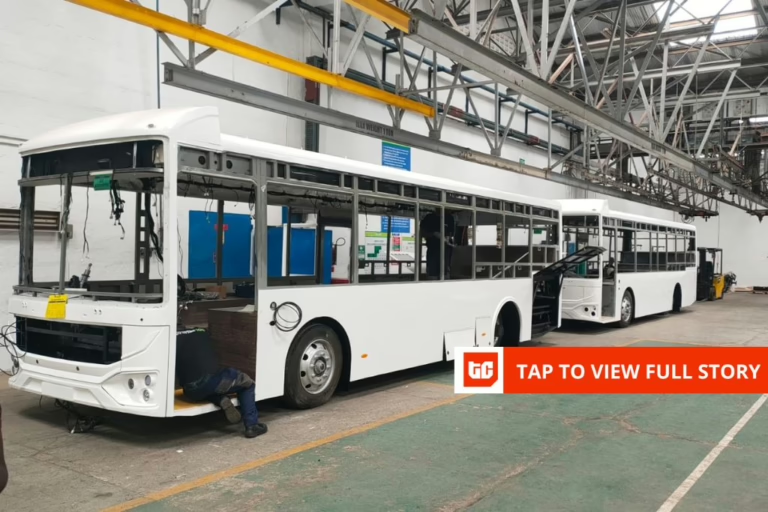Nairobi-based electric mobility innovator BasiGo aims to deploy 1,000 electric buses across Kenya by 2027, targeting a significant reduction in emissions from the country’s predominantly diesel-powered minibus transport system that serves as the backbone of urban commuting.
To date, BasiGo has locally assembled 53 electric buses, with an additional 27 units currently being produced at its newly established manufacturing facility in Thika, located about 50 kilometers northeast of Nairobi. This plant, developed in collaboration with Kenya Vehicle Manufacturers, represents Kenya’s inaugural dedicated electric bus assembly line and is part of a broader investment exceeding KES 3.5 billion (approximately $27 million). Production capacity is projected to increase to 20 buses per month by 2026.
The company recently introduced its KL-9 model, tailored specifically for Nairobi’s congested commuter corridors. Equipped with a 300kWh battery, the bus can be fully charged within two hours. Leading transport operators such as Citihoppa, Ummoinner, and Rembo Shuttles have already integrated these electric buses into their fleets.
“BasiGo has developed a comprehensive understanding of the electric bus market in Kenya,” stated Jit Bhattacharya, co-founder and CEO. “Partnering with industry giant King Long, we are proud to launch a cutting-edge electric bus that we believe will transform public transportation across the country.”
Challenges in Adoption
Kenya’s heavy dependence on informal “matatus” presents a unique opportunity for electric mobility to revolutionize urban transport. However, the transition has been gradual, hindered by steep upfront costs, insufficient charging infrastructure, and the absence of a clear national electric vehicle (EV) policy. Unlike Rwanda, which has eliminated import taxes on EVs, or South Africa, where utility companies support the development of charging networks, Kenya has yet to formalize a comprehensive EV strategy.
Despite these obstacles, Kenya is well-positioned for e-mobility growth, with over 90% of its electricity generated from renewable sources such as geothermal and hydropower. Kenya Power, the national utility, confirms it has ample off-peak electricity capacity to support the charging needs of thousands of electric vehicles.

According to the Energy and Petroleum Regulatory Authority (EPRA), road transport consumes over 40% of Kenya’s total energy and is the fastest-growing contributor to greenhouse gas emissions. The nation spends upwards of $5 billion annually on fuel imports-about 15% of its total import bill-making the transport sector highly susceptible to fluctuations in global oil prices.
Currently, Kenya has approximately 9,000 registered electric vehicles, as reported by the National Transport and Safety Authority. This figure contrasts with Rwanda’s 600 fully electric vehicles, supported by strong incentives, and South Africa’s more than 10,000 EVs, the largest market on the continent.
To address affordability challenges, BasiGo is introducing a leasing scheme that allows operators to pay for vehicle usage while the company manages maintenance and charging services.
Established in 2021, BasiGo has secured $63.1 million in funding from investors such as SBI Investment, Novastar Ventures, Trucks Venture Capital, Africa50, and Moxxie Ventures. Its latest round, a $24 million Series A led by Africa50, underscores growing investor confidence.
Looking ahead, BasiGo intends to expand its footprint by exporting electric buses to other African nations, including Nigeria and Tanzania, where governments face increasing pressure to combat urban air pollution and reduce dependence on imported diesel fuel.


















0 Comments